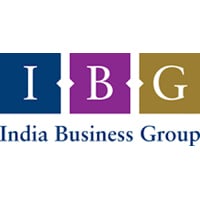

Senior vice president and group general counsel | Flipkart Group






Saroj Panigrahi
Senior vice president and group general counsel | Flipkart Group
Team size: 90 approximately
Have any recent political, economic or regulatory changes impacted your work? How are you dealing with this?
As India begins to augment its information technology prowess, it is keen to advance its digital economy, driven by new technologies and innovations. Post-Covid e-commerce has emerged as the key to the growth of the economy. E-commerce has fuelled digital economies globally and is in the process of catching its true potential in India. E-commerce has helped local artisans, and small sellers directly sell their products to consumers at fair prices. The existing regulatory arbitrage has been one of the major factors which has impeded the growth of entities in the sector.
How has the increasing consciousness of climate change and sustainability affected your company and the team’s priorities?
Flipkart Group has committed to setting an ambitious Net Zero target across its value chain by 2040, becoming the only Indian e-commerce company in India to commit to this environmental goal. To ‘go net zero’ is to reduce greenhouse gas emissions and to ensure that removals balance any ongoing emissions. As part of this commitment, the Flipkart Group will take measures in its operations to reduce 100% of emissions by 2030 by increasing energy efficiency at its corporate office and supply chain facilities and powering its energy requirements through renewable sources such as solar.
Recognising that most of the climate impact comes from Flipkart’s extended value chain of suppliers, waste in operations, transportation and logistics, and product end-of-life, it will also work with its sellers, consumers, and partners to achieve Net Zero emissions by 2040.
The Flipkart Team is focussing on the following critical areas of impact to achieve a clearly defined decarbonisation pathway: a sustainable platform — to drive consumer awareness and initiatives to support sustainable products while creating circular business models; responsible value chain —through electrification of logistics, incorporating renewable energy, environment-friendly packaging, waste management initiatives, and responsible sourcing in business practices, the establishment of green infrastructure, and supplier engagement and seller education; impact positive collaborations— fostering industry partnerships to develop innovative solutions for creating a sustainable e-commerce model.
In its journey to a more sustainable value chain across our ecosystem, the Flipkart Group has taken multiple steps in the past several years, including the large-scale introduction of electric vehicles in our supply chain, the elimination of single-use plastic packaging, the introduction of paper packaging through sustainable forest-derived materials, and development of sustainable supply chain infrastructure – such as IGBC certified warehouses – to transition to renewable energy across facilities.
From Electric Vehicles, EVs, green infrastructure, eco-friendly packaging and more, we continue to strengthen our vision of creating a positive impact – on our communities, the future, and the planet.
Senior vice president and group general counsel | Flipkart
Senior vice president and group general counsel | Flipkart